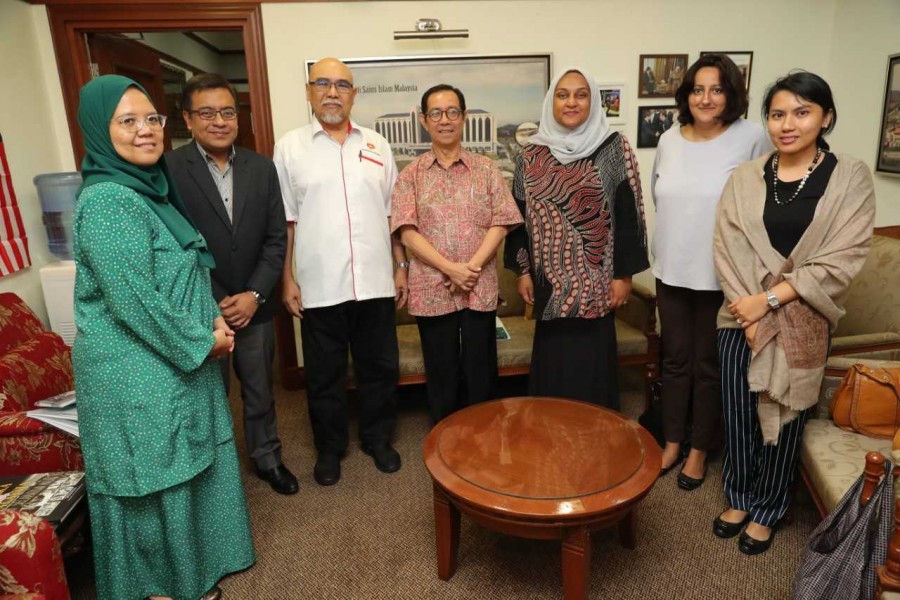NILAI, September 12, 2018 – Professor Tan Sri Dzulkifli Abdul Razak, Founding Converner of Sejahtera Leadership Initiative (SLI) who’s Chairperson of Universiti Sains Islam Malaysia (USIM) and concurrently Rector of International Islamic University Malaysia (IIUM) graciously received the visit from top management team of Yayasan Hasanan (YH) led by its Managing Director, Shahira Ahmed Bazari. YH team comprised of Senior Vice President (SVP) Dr. Nur Anuar Abdul Mutalib, Head of Education, SVP Anita Ahmad, Head – Community Development, Vice President Razlina Azura Radzi, Head – Programme and Knowledge Manager Aditi Malhotra, Head of Knowledge. They came to brief about the revised objectives with 32 quantitative and 26 qualitative indicators for YH Scorecard using key national indicators as a guide for measuring its performance targets.
YH is a Corporate Responsibility (CR) Foundation of Khazanah Nasional Berhad (Khazanah), the strategic investment fund of the Government of Malaysia. It was set up as an independent entity on 01 July 2015 to empower communities, encourage social inclusivity and improve the environment. Where Khazanah oversees creation of true value for Malaysia through financial and strategic initiatives; YH focuses on the country’s pressing community and social issues, the upscaling of civil society organizations and partners working in collaboration through a social sector ecosystem. Together, Khazanah and YH drive a nation-building agenda of progressing Malaysia as a globally competitive nation.
This book addressed the futuristic issues: how far do cultures affesct the future of the planet? Can the debate on environment and global warming be influenced by the culyures of East and West understanding each other better? In this provicative and wide-ranging dialogue, two of the most influential thinkers of recent times, Hochleitner and Ikeda propose that only a ‘human revolution’ and a fundamental shift in the hearts and minds of individuals can stimulate a revolution in humanity’s relationship with the planet. It requires a transformation of values and leadrship for a hopeful orientation towards the children of the future rather than a misguided preoccupation with short-termist policies.
Dr. Zulkifly Baharom
CEO Sejahtera Leadership Initiative

